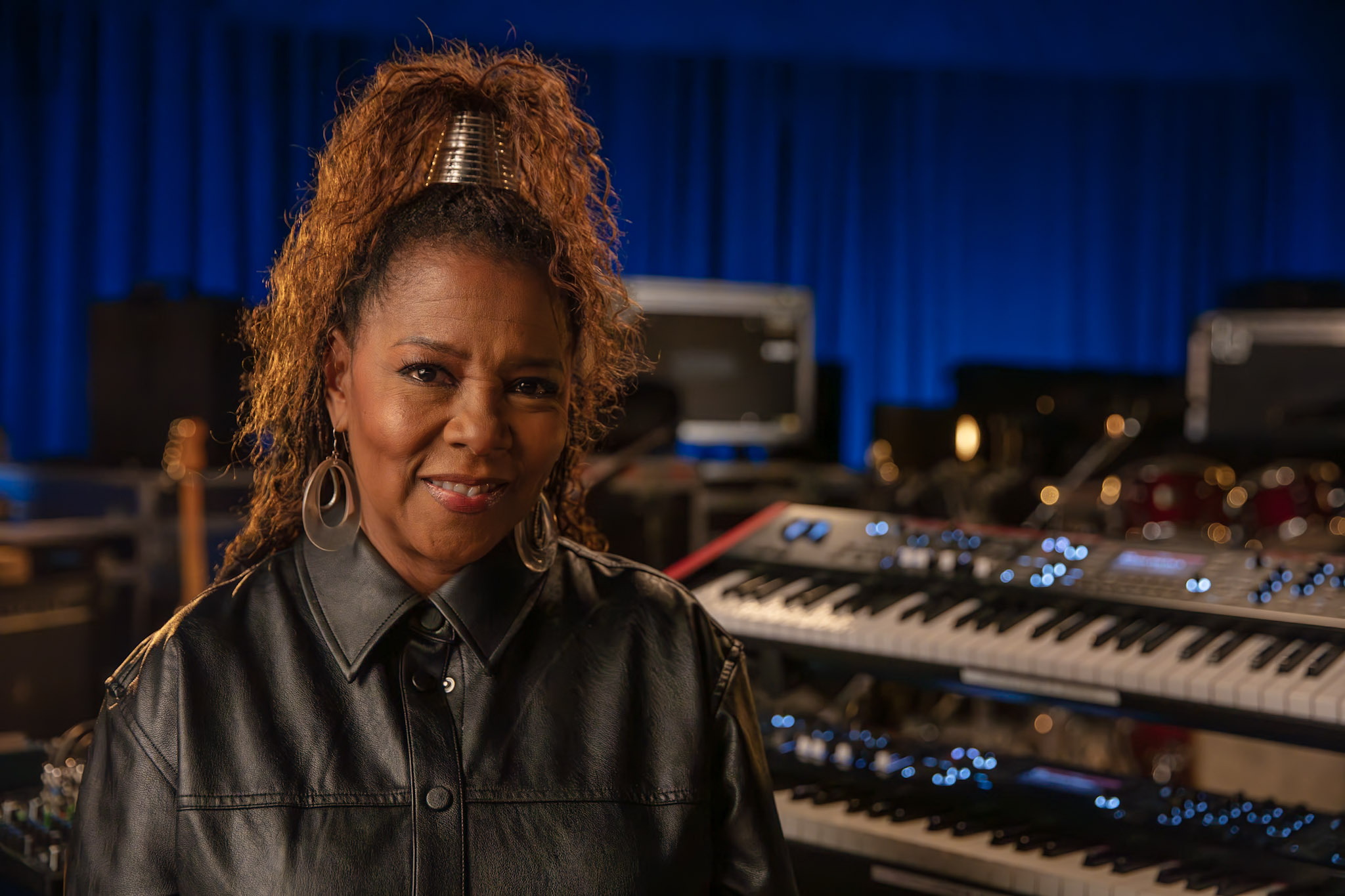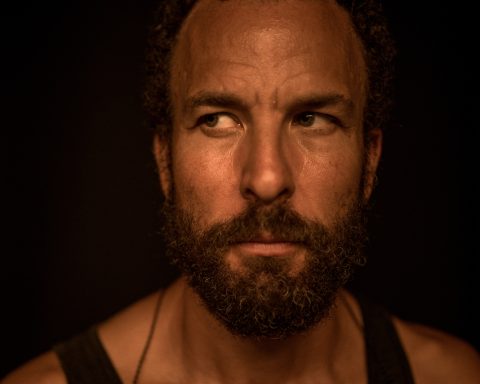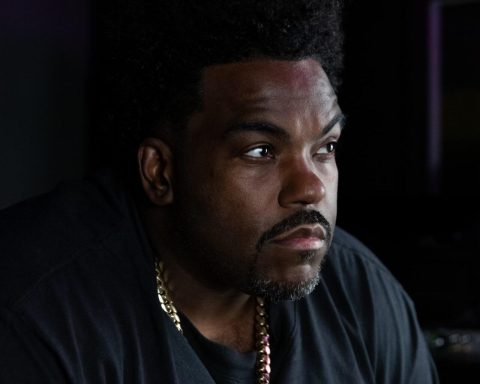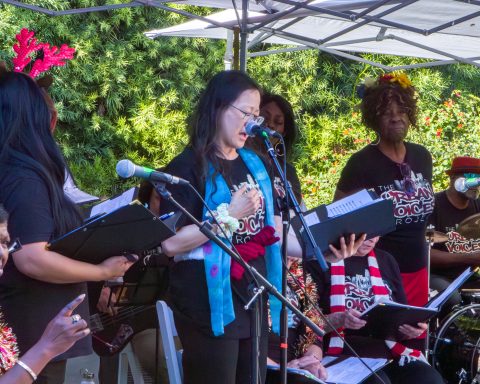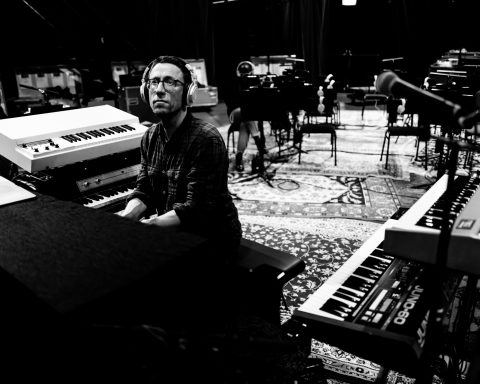Some artists have careers that defy pat categorization. Patrice Rushen is one such musician. A renowned songwriter and keyboardist, Rushen has collaborated with artists including Herbie Hancock, Boyz II Men, George Benson, Tom Jones, Nancy Wilson, Michael Jackson, and Sheena Easton. Among many achievements, Rushen was the first woman to serve as musical director for the Grammy Awards and was musical director for Janet Jackson’s janet. album tour.
Her 1982 Grammy-nominated recording “Forget Me Nots” was famously sampled for “Men in Black” by Will Smith. In academia, Rushen received an Honorary Doctorate of Music from Berklee College of Music for “outstanding contribution to music and culture” and was chair of the USC Thornton School Popular Music Program 2012-2023, mentoring the next generation of creatives. She opens up about her beginnings, achievements, and what she hopes to impart to her students.
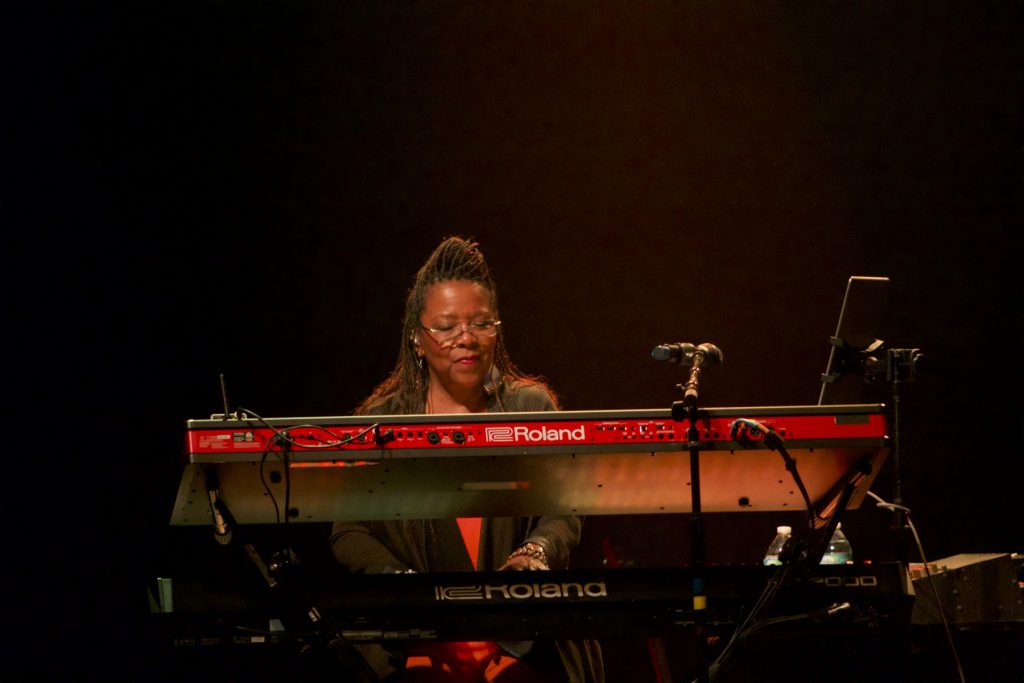
An Expanding Repertoire
Rushen began playing piano at five, starting with a classical repertoire. “But at home, we listened to everything,” she says. “I’ve enjoyed playing in church and wanted to play the music on radio and television. All the themes of those great shows—that’s what I thought I wanted to do.”
Bolstered by a hunger for new sounds, she started to branch out. “I started picking out stuff, and I would take it to my lesson,” she says, “and sometimes, in lieu of the Mozart or Haydn I was supposed to play, my teacher would let me play James Brown and the Beatles.”
Most of these early musical experiences centered around traditional piano. Still, that didn’t keep the young Rushen from checking out gear as it appeared in the marketplace. “Keyboards didn’t come into the mix for a long time,” she explains. “There were synthesizers, but they were huge, and they were expensive. In high school, I finally got a Rhodes.”
"Sometimes, in lieu of the Mozart or Haydn I was supposed to play, my teacher would let me play James Brown and the Beatles.”
Key Influences
Certain artists made an impression on the young artist, and while they came from all genres, there were common threads. “My heroes were really eclectic,” confirms Rushen. “When I was in my teens, it was Stevie Wonder, Sly Stone, and Miles Davis. And my parents were listening to Ella Fitzgerald and Cannonball Adderley.”
She shares some of the traits that elevated certain players for her. “They were composers and songwriters and anybody that showed a certain mastery and excellence.” Nevertheless, at her core, Rushen was looking for emotion. “It was about the feeling in the music more than anything. Keyboards are a platform, but the idea is the connection.”
Soon, Rushen was performing live across the Los Angeles area. “I had some pretty amazing first gigs,” she says. “My band was called Red Beans and Rice, and we played dances and parties. People like Abbey Lincoln would call me to play, and she introduced me to Maya Angelou.”
"My band was called Red Beans and Rice, and we played dances and parties. People like Abbey Lincoln would call me to play, and she introduced me to Maya Angelou."
Doors Fling Open
Opportunities for the newly minted live act began to balloon; from there, Rushen began to move her goalposts. “As time went on, I wanted to do more studio work. I did a session for Jean-Luc Ponty, and after that, people heard me in the context of doing session work,” she says. “That opened the door for all the other things I wanted to do, especially in film and TV.”
Cinema, in particular, appealed greatly to Rushen, who was still in college at the time and couldn’t tour extensively. “I wanted specifically to be a film composer,” she declares. “so being involved in situations with different styles of orchestras and bands was key to getting the vocabulary of a composer.”
Stage Life
Nevertheless, in the wake of Rushen’s solo success and high-profile collaboration, the road eventually beckoned. “The first big tour I went on was with Carlos Santana and Wayne Shorter, and it was my first time going to Europe.” The experience of traveling with a pair of legends was formative for Rushen, who remembers it fondly. “These were two of my heroes, so to be out on the road with them in that situation was thrilling and eye-opening.”
Over the years, she has played venues of all sizes, and Rushen insists each has its own unique charm. “The Hollywood Bowl is a favorite spot for me,” she says. “But sometimes, in a little club with 100 people, you can really feel the circle happening. It goes out, and the audience gives you something in return.”
"The Hollywood Bowl is a favorite spot for me. But sometimes, in a little club with 100 people, you can really feel the circle happening."
Solo From the Heart
In addition to serving as Musical Director and keyboardist for the crème de la crème of pop and jazz, Rushen maintains a burgeoning solo career. Through the late ’70s and ’80s, she released acclaimed albums like Pizzazz, Posh, and 1982’s landmark Straight from the Heart, which yielded a timeless hit in “Forget Me Nots.” It’s a track people have certainly not forgotten, forming the basis of the stratospheric theme song “Men in Black.”
She remains thankful for how her solo work is received. So, was there a particular moment when she felt like she made it? “I have looked around and seen certain things and gone, ‘Wow, this was pretty cool,’” Rushen admits. “A big one is playing concerts under my name with my band and watching people six to 76 years old singing the same song. It’s crazy.”
To Teach is to Reach
Rushen is unique in that she maintains active touring and recording schedules alongside a demanding job as an educator. “I kind of fell into music education,” she says. “It turned out to be the best vantage point to see in terms of the big picture, learn how to work with people, show people things, and receive knowledge.”
As for her educational ethos, it’s straightforward yet profound, like Rushen herself. “I offer some of the ways in which you get at the goal of learning, then break it down into bites that lead you to it,” she says. “That serves me, and that’s part of how I teach.”
“I kind of fell into music education. It turned out to be the best vantage point to see in terms of the big picture, learn how to work with people, show people things, and receive knowledge."
A Sense of Immediacy
Roland gear connects directly to her role as an instructor. “In my role as an educator, I needed to find instruments for students who are popular music majors,” she explains. “Many of them are not keyboard players but need to play keyboards in class because they’re songwriters or bass players.”
Rushen was drawn to the brand for its aesthetics and history. “Roland seemed to make the most sense immediately, visually,” she explains. “As I began to understand more about the philosophy behind the instruments, I felt like I should be using these. It’s been a been a fantastic journey so far.”
That journey has seen Rushen spending time with the V-STAGE. “It has a very strong identity of being immediate,” she says of the instrument. “It gives you the capability to be a little more adventurous in how you address the sounds.”
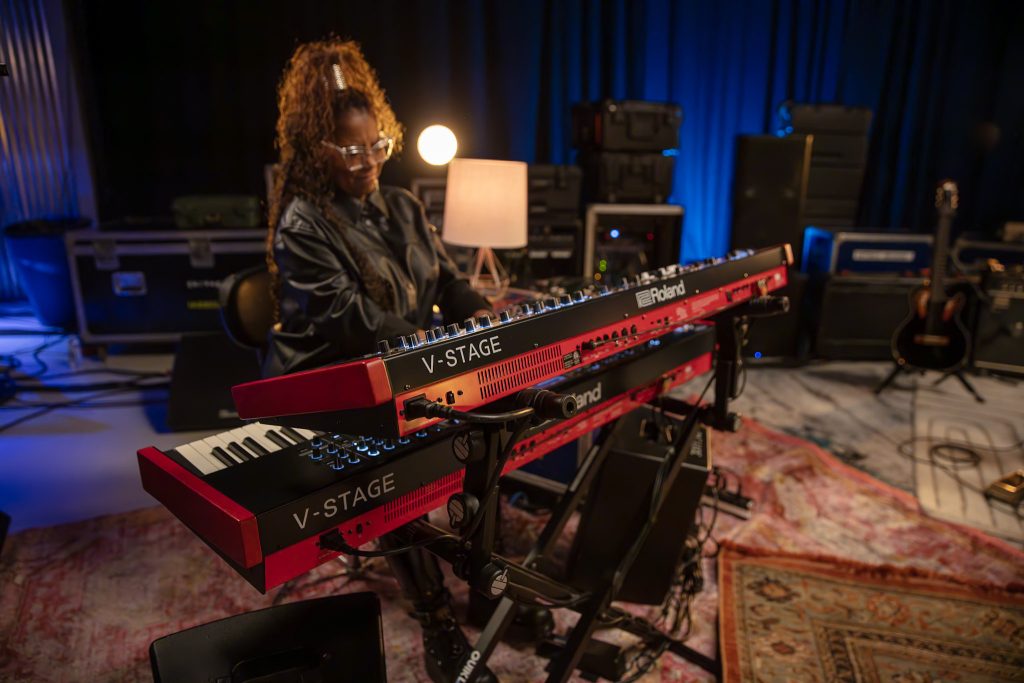
"As I began to understand more about the philosophy behind the instruments, I felt like I should be using these. It's been a been a fantastic journey so far."
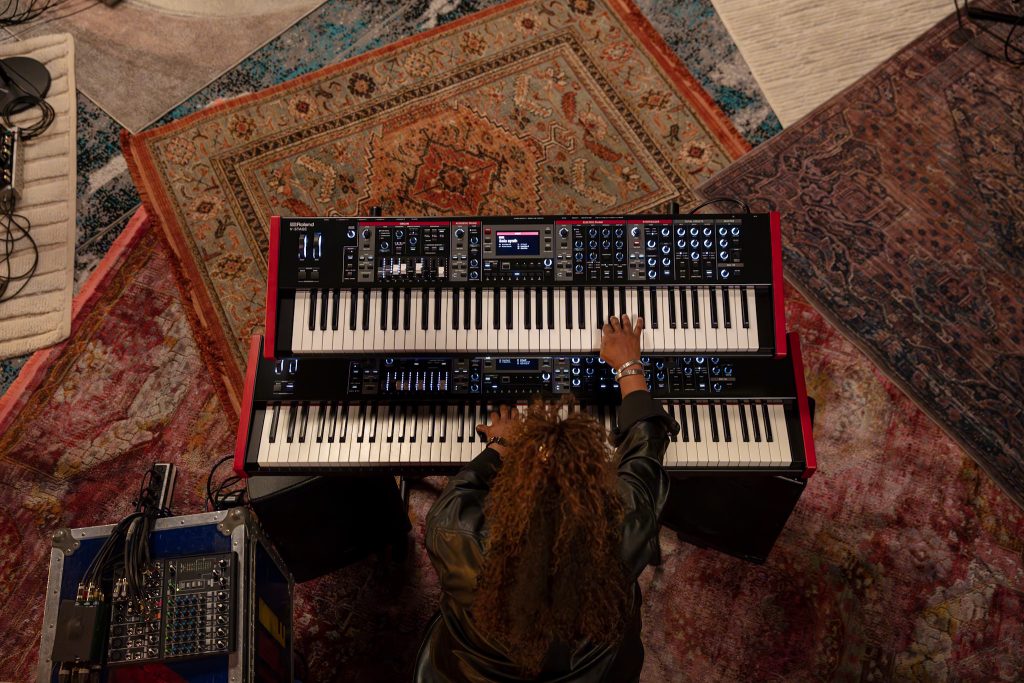
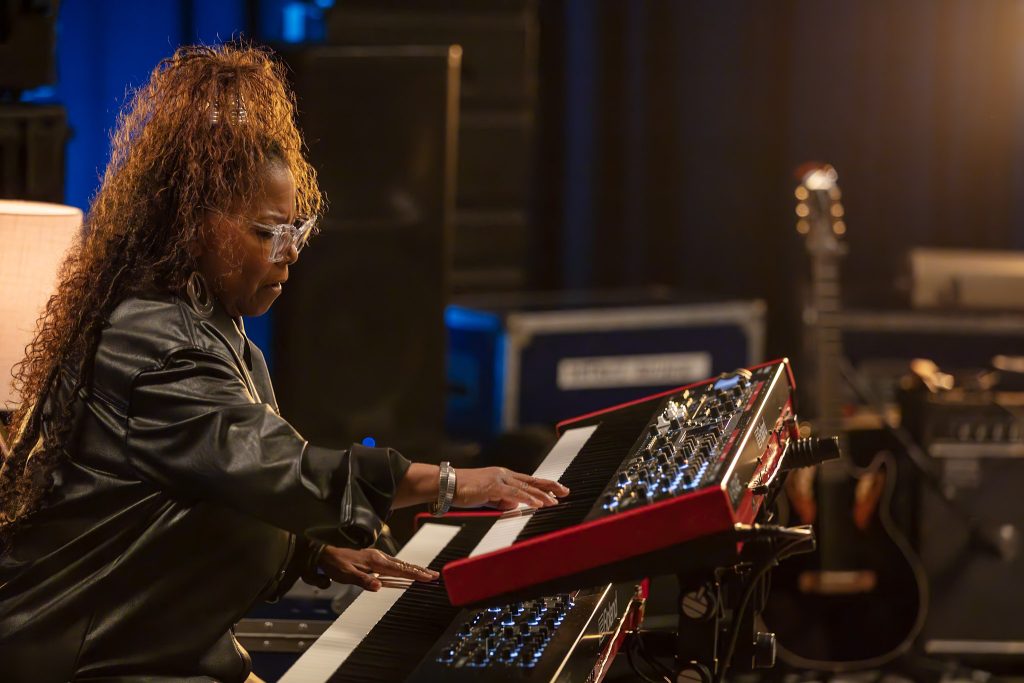
Humble Trailblazer
Rushen is very intentional about the people she works with as well. “Most people who do something really well enjoy spending time around people who do it well,” she declares. “Sometimes it won’t go so well, and you might fail. But part of that failure propels you to the next place.”
She even has a positive analytical bent about the difficulties she has faced. “What allowed me to find ways to navigate is to recognize what is happening is usually not personal, and it’s usually based on things over which I have no control.”
Rushen stresses that conflict can lead to solutions, even providing gateways to fresh possibilities. “I try to allow people to be vulnerable so we can solve a problem together and come up with something better than we would have done alone.”
With all she’s achieved, it’s hard to conceive that Rushen isn’t aware of her status as a groundbreaking artist. Yet she is wry about whether she considers herself a music industry trailblazer. “I think other people do,” Rushen says. “I’m just doing what I do.”

